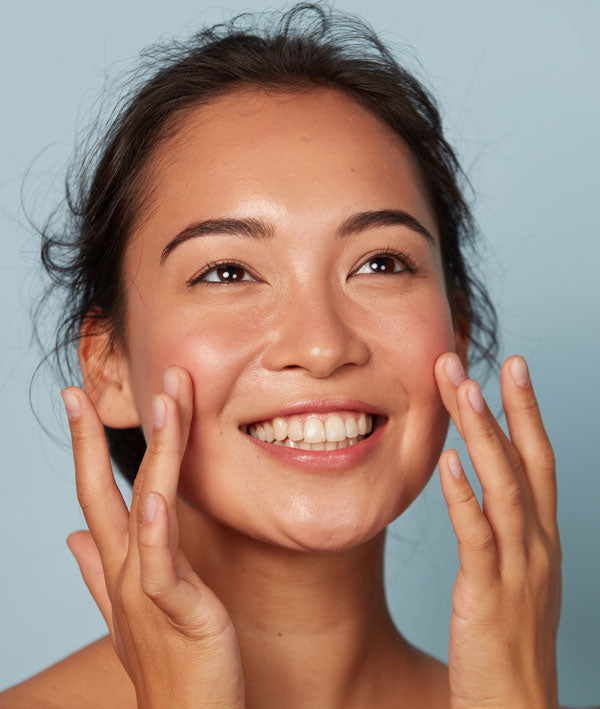If you have acne-prone skin, you’ve likely spent time searching for products that treat breakouts without causing dryness, irritation, or clogged pores. Serums are often overlooked in acne routines, but they can be game-changers when chosen wisely. Because serums are lightweight, fast-absorbing, and packed with concentrated active ingredients, they can target acne and its side effects—like inflammation, dark spots, and dehydration—more effectively than many heavier creams.
In this guide, we’ll walk through why serums can help, what ingredients to look for, and our top acne-safe picks.
Why Serums Can Be Beneficial for Acne-Prone Skin
Serums are specially formulated to deliver a high concentration of active ingredients deep into the skin. For acne-prone skin, this means you can address multiple concerns at once:
-
Treating Breakouts: Certain serums are formulated with antibacterial, exfoliating, or anti-inflammatory agents to help reduce acne.
-
Minimizing Post-Acne Marks: Serums can fade hyperpigmentation from old breakouts faster than most moisturizers.
-
Preventing Clogged Pores: Because serums are typically water- or gel-based, they hydrate without adding heavy oils.
Unlike thick creams that can feel greasy or suffocating, serums are lightweight and layer well under sunscreen and makeup—making them easy to incorporate into both morning and evening routines.
Key Ingredients to Look for in Acne-Fighting Serums
When selecting a serum for acne-prone skin, the formula is everything. Here are some powerhouse ingredients that can make a noticeable difference:
-
Niacinamide: Helps regulate oil production, calm redness, and strengthen the skin barrier. It’s gentle enough for daily use and works well alongside other acne treatments.
-
Salicylic Acid (BHA): Penetrates pores to dissolve oil and debris, preventing and treating blackheads and whiteheads.
-
Azelaic Acid: Reduces inflammation, minimizes redness, and has antibacterial properties.
-
Retinol (Vitamin A): Speeds up cell turnover to prevent clogged pores and smooth texture—but should be used gradually to avoid irritation.
-
Vitamin C: Helps fade dark spots and supports collagen production, aiding in the healing process after breakouts.
-
Tea Tree Oil Extract: A natural antibacterial agent that can reduce active pimples.
-
Centella Asiatica (Cica): Soothes irritated skin and supports repair of acne-damaged areas.
When possible, look for serums labeled non-comedogenic to ensure they won’t clog pores.
Hydrating Serums That Won’t Clog Pores
Acne-prone skin can still be dehydrated—especially if you use drying treatments like benzoyl peroxide or retinoids. The right hydrating serum will replenish moisture without causing congestion.
Great hydration-friendly ingredients include:
-
Hyaluronic Acid: Attracts and retains water in the skin without adding oil.
-
Panthenol (Vitamin B5): Improves skin softness while calming irritation.
-
Glycerin: A lightweight humectant that draws water into the skin.
-
Aloe Vera Extract: Naturally soothing and hydrating.
These serums can be used alongside acne treatments to keep your skin balanced. When skin is properly hydrated, it’s less likely to overproduce oil and trigger more breakouts.
How to Layer Skincare for Clearer Skin
Serums are most effective when used in the right order with other skincare products:
-
Cleanse: Start with a gentle, sulfate-free cleanser to remove dirt, oil, and makeup.
-
Tone (Optional): A hydrating or exfoliating toner can prep skin and enhance serum absorption.
-
Apply Treatment Serum: Use your targeted acne-fighting serum first, as these contain active ingredients designed to penetrate deeply.
-
Apply Hydrating Serum: If using two serums, apply the treatment first and the hydrating one second.
-
Moisturize: Lock in hydration with a lightweight, non-comedogenic moisturizer.
-
SPF (AM Routine): Always finish your morning routine with a broad-spectrum sunscreen to protect healing skin and prevent hyperpigmentation.
Pro tip: Avoid layering too many strong actives at once (like retinol and high-strength acids) to prevent irritation.
Our Top Picks for Acne-Safe Serums
Here are some standout serums that balance effectiveness with gentleness—perfect for acne-prone skin:
-
Niacinamide + Zinc Serums – Help reduce redness and regulate oil production without causing dryness.
-
Azelaic Acid Serums – Offer antibacterial benefits and help fade lingering post-acne marks.
-
Hyaluronic Acid Serums – Provide essential hydration without making skin greasy or congested.
-
Salicylic Acid Serums – Great for those dealing with frequent blackheads or breakouts, as they deeply clean pores.
-
Multi-Tasking Antioxidant Serums – Contain Vitamin C plus soothing ingredients to brighten and protect skin while keeping breakouts in check.
When introducing a new serum, patch test first and start with a few times per week to see how your skin responds.
The best serum for acne-prone skin depends on your individual concerns—whether that’s reducing active breakouts, fading dark spots, or restoring hydration. By focusing on lightweight, non-comedogenic formulas with targeted actives, you can create a skincare routine that supports clear, healthy skin without causing new breakouts.
And remember: consistency is key. With the right serum (or a combination of two), you can tackle acne from multiple angles and keep your skin balanced, calm, and glowing.






